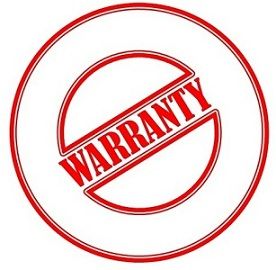 In a contract of sale, the subject matter is ‘goods’. There are millions of sale transactions which occur in the normal course, all around the world. There are certain provisions which need to be fulfilled because it is demanded by the contract. These prerequisites can either be a condition and warranty. The condition is the fundamental stipulation of the contract of sale whereas Warranty is an additional stipulation.
In a contract of sale, the subject matter is ‘goods’. There are millions of sale transactions which occur in the normal course, all around the world. There are certain provisions which need to be fulfilled because it is demanded by the contract. These prerequisites can either be a condition and warranty. The condition is the fundamental stipulation of the contract of sale whereas Warranty is an additional stipulation.
In other words, condition is the arrangement, which should be present at the time of happening of another event. Warranty is a written guarantee, issued to the buyer by the manufacturer or seller, committing to repair or replace the product, if required, within specified time. Check out this article, in which we have presented the difference between condition and warranty in sale of goods act.
Content: Condition Vs Warranty
Comparison Chart
| Basis for Comparison | Condition | Warranty |
|---|---|---|
| Meaning | A requirement or event that should be performed before the completion of another action, is known as Condition. | A warranty is an assurance given by the seller to the buyer about the state of the product, that the prescribed facts are genuine. |
| Defined in | Section 12 (2) of Indian Sale of Goods Act, 1930. | Section 12 (3) of Indian Sale of Goods Act, 1930. |
| What is it? | It is directly associated with the objective of the contract. | It is a subsidiary provision related to the object of the contract. |
| Result of breach | Termination of contract. | Claim damages for the breach. |
| Violation | Violation of condition can be regarded as a violation of the warranty. | Violation of warranty does not affect the condition. |
| Remedy available to the aggrieved party on breach | Repudiate the contract as well as claim damages. | Claim damages only. |
Definition of Condition
Certain terms, obligations, and provisions are imposed by the buyer and seller while entering into a contract of sale, which needs to be satisfied, which are commonly known as Conditions. The conditions are indispensable to the objective of the contract. There are two types of conditions, in a contract of sale which are:
- Expressed Condition: The conditions which are clearly defined and agreed upon by the parties while entering into the contract.
- Implied Condition: The conditions which are not expressly provided, but as per law, some conditions are supposed to be present at the time making the contract. However, these conditions can be waived off through express agreement. Some examples of implied conditions are:
- The condition relating to the title of goods.
- Condition concerning the quality and fitness of the goods.
- Condition as to wholesomeness.
- Sale by sample
- Sale by description.
Definition of Warranty
A warranty is a guarantee given by the seller to the buyer about the quality, fitness and performance of the product. It is an assurance provided by the manufacturer to the customer that the said facts about the goods are true and at its best. Many times, if the warranty was given, proves false, and the product does not function as described by the seller then remedies as a return or exchange are also available to the buyer i.e. as stated in the contract.
A warranty can be for the lifetime or a limited period. It may be either expressed, i.e., which is specifically defined or implied, which is not explicitly provided but arises according to the nature of sale like:
- Warranty related to undisturbed possession of the buyer.
- The warranty that the goods are free of any charge.
- Disclosure of harmful nature of goods.
- Warranty as to quality and fitness
Key Differences Between Condition and Warranty
The following are the major differences between condition and warranty in business law:
- A condition is an obligation which requires being fulfilled before another proposition takes place. A warranty is a surety given by the seller regarding the state of the product.
- The term condition is defined in section 12 (2) of the Indian Sale of Goods, Act 1930 whereas warranty is defined in section 12 (3).
- The condition is vital to the theme of the contract while Warranty is ancillary.
- Breach of any condition may result in the termination of the contract while the breach of warranty may not lead to the cancellation of the contract.
- Violating a condition means violating a warranty too, but this is not the case with warranty.
- In the case of breach of condition, the innocent party has the right to rescind the contract as well as a claim for damages. On the other hand, in breach of warranty, the aggrieved party can only sue the other party for damages.
Video: CRR Vs SLR
Conclusion
At the time of agreeing to the contract of sale, both the buyer and seller puts some stipulations regarding payment, delivery, quality, quantity, etc. These stipulations can be either condition or warranty, which depends on the nature of the contract. Every contract of sale has some implied conditions and warranties.
The Principle of Caveat Emptor deals with the implied conditions and warranties. The term caveat emptor refers, ‘let the buyer beware’ i.e. it is not the duty of the seller to reveal all the defects in the goods and so he should not be held responsible for the same. The buyer should satisfy himself completely before purchasing a product. However, there are certain exceptions to this rule.






Rajeshri Dhote says
Very nice and useful write up. Helps me allot in exam time. Thanks
Rahul choudhary says
A clearly prescribed article .!
Farhad says
very good write up…………
Prashant Patil says
Thank you
ARUN KUMAR SAU says
More elaboration was required.